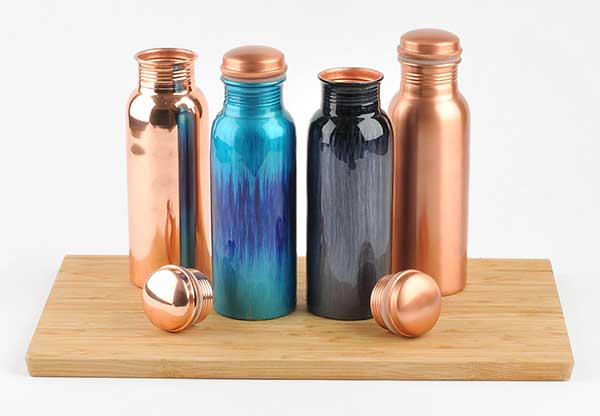
One of our main new collections for 2020, our H2O Collection, was created due to our determination to make a difference after our recent visit to see our suppliers in India. During the visit we saw first-hand the devastating effects of plastic pollution and the miles of mountains of plastic waste it creates. It was very upsetting and made us committed to do something about it by launching our H2O Collection of re-usable Copper Water Bottles.
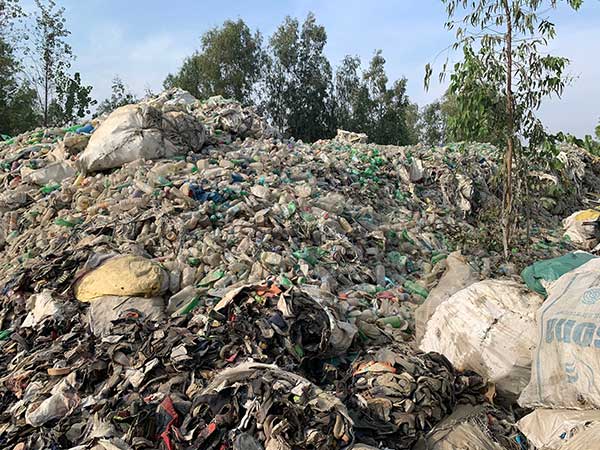
We are passionate about helping to reduce plastic pollution and for years we have tried to remove all plastic packaging from our products and ensure all our products are made from natural or recycled materials. As part of our commitment, we have made a significant investment in a cardboard shredder to try and reuse all of our unwanted cardboard as packaging.
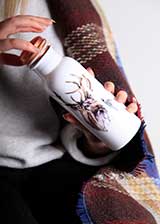 To introduce the H2O Collection of re-usable Copper Water Bottles was a natural continuation of our desire to not only eliminate plastic in our products and packaging, but to actively reduce the amount of plastic, specifically plastic bottles, used by consumers. We are hoping that each Copper Water Bottle we sell will “help the environment one sip at a time” by reducing consumer’s use of single use plastic water bottles. Did you know that 10,000 Plastic Water Bottles are purchased every second that are not recycled? We hope you can support us by stocking these fantastic copper water bottles. We have chosen to make them from copper due to the numerous health benefits of using copper drinking vessels, so we hope to not only help the environment but help our customers stay fit and healthy too.
To introduce the H2O Collection of re-usable Copper Water Bottles was a natural continuation of our desire to not only eliminate plastic in our products and packaging, but to actively reduce the amount of plastic, specifically plastic bottles, used by consumers. We are hoping that each Copper Water Bottle we sell will “help the environment one sip at a time” by reducing consumer’s use of single use plastic water bottles. Did you know that 10,000 Plastic Water Bottles are purchased every second that are not recycled? We hope you can support us by stocking these fantastic copper water bottles. We have chosen to make them from copper due to the numerous health benefits of using copper drinking vessels, so we hope to not only help the environment but help our customers stay fit and healthy too.
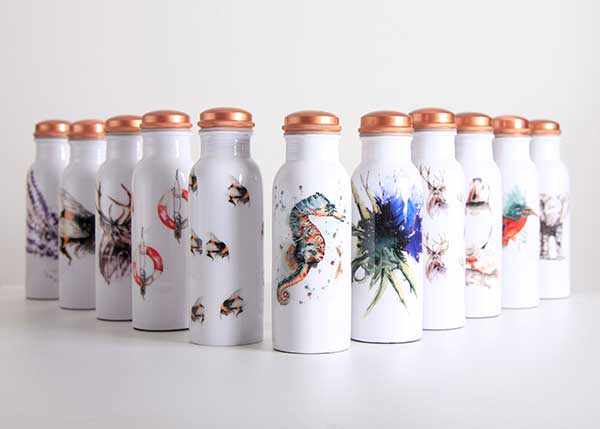
Why choose a Re-usable Copper Water Bottle from our H2O Collection?
-
Help reduce Plastic Pollution - 10,000 Plastic Water Bottles are purchased every second that are not recycled. By using our Copper Water Bottles you will be “helping the environment one sip at a time” by reducing the use of single use plastic water bottles.
-
Ocean Friendly - The Copper Water Bottles are not only sustainably sourced, but are recyclable and plastic free, coming in a beautiful recycled paper gift box.
-
Handmade & Fair Trade -Our re-usable Copper Water Bottles are handmade and are finished by our skilled Fair Trade artisans in India in the beautiful patterns which are designed in Great Britain.
-
Health Benefits - Copper drinking vessels are believed to have a number of health benefits including helping to remove bacteria from drinking water, aiding the digestive system, boosting the immune system, reducing arthritis and many more. Copper drinking vessels have been used for centuries and their health benefits are only now starting to be appreciated by health care professionals.
Our H20 Collection of re-usable Copper Water Bottles will not only help the environment but also help you stay fit and healthy too.
View the H2O collection here
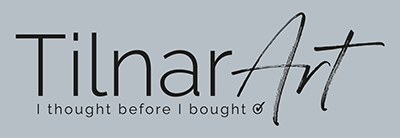


 To introduce the H2O Collection of re-usable Copper Water Bottles was a natural continuation of our desire to not only eliminate plastic in our products and packaging, but to actively reduce the amount of plastic, specifically plastic bottles, used by consumers. We are hoping that each Copper Water Bottle we sell will
To introduce the H2O Collection of re-usable Copper Water Bottles was a natural continuation of our desire to not only eliminate plastic in our products and packaging, but to actively reduce the amount of plastic, specifically plastic bottles, used by consumers. We are hoping that each Copper Water Bottle we sell will 




